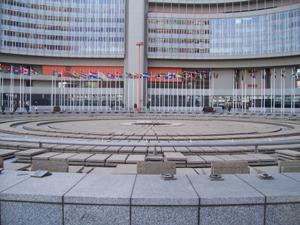The 53 member states of the Commission on Narcotic Drugs, the UN body charged with supervising the application of the international drug control treaties that form the legal backbone of global drug prohibition, is set to meet in Vienna on December 2-4, and it will take up the question of making some modest scheduling changes to the way cannabis is classified.

With medical marijuana legal in dozens of countries in one form or another, the ever-increasing mountain of evidence supporting the therapeutic uses of cannabis, not to mention outright legalization in 15 American states Canada and Uruguay, with Mexico about to come on board, the harsh scheduling of cannabis is out of touch with both the science and the tide of history. Led by dedicated public health officials in the UN bureaucracies -- with equally dedicated activists monitoring the process and advocating -- the push is underway to revise those schedules.
But this is the United Nations, and change comes at a glacial pace and even then, only incrementally. The Geneva-based World Health Organization (WHO) is charged under the UN drug conventions with assessing the harms and benefits of substances and making scheduling recommendations. For the first time in its history, it assessed cannabis in 2018, through an examination by WHO's Expert Committee on Drug Dependence (ECDD). In January 2019, the WHO formally recommended that cannabis be removed from Schedule IV and that CBD cannabis preparations containing less than 0.2% THC, such as tinctures and extracts, be removed from the schedules altogether.
Now the recommendations are back in Vienna, where the CND after several delays is finally expected to vote on them. As the official discussion at an October intersessional meeting of the CND shows, governments with regressive drug policies have argued that recognizing marijuana's medical benefit could lead to increased abuse of the drug, and some have questioned WHO's scientific analysis.
While civil society groups gave the WHO's recommendations decidedly mixed reviews, including its "very questionable rationale for keeping cannabis in Schedule I," they also applauded its "obvious recommendations deserving support." The removal of cannabis form Schedule IV in particular would signify UN recognition that cannabis really does have therapeutic uses.
Stay tuned. The CND session and possible progress on cannabis liberalization at the international level are just days away.
This work by StoptheDrugWar.org is licensed under Creative Commons Attribution-ShareAlike 4.0 International
Comments
a drug schedule w/ weed but not booze is just a political stunt
A republican style science be damned travesty of justice. Booze on, alcohol supremacist bigots - but watch out for the drunks on the road having their lethal fun and games filled Thanksgiving.
Add new comment